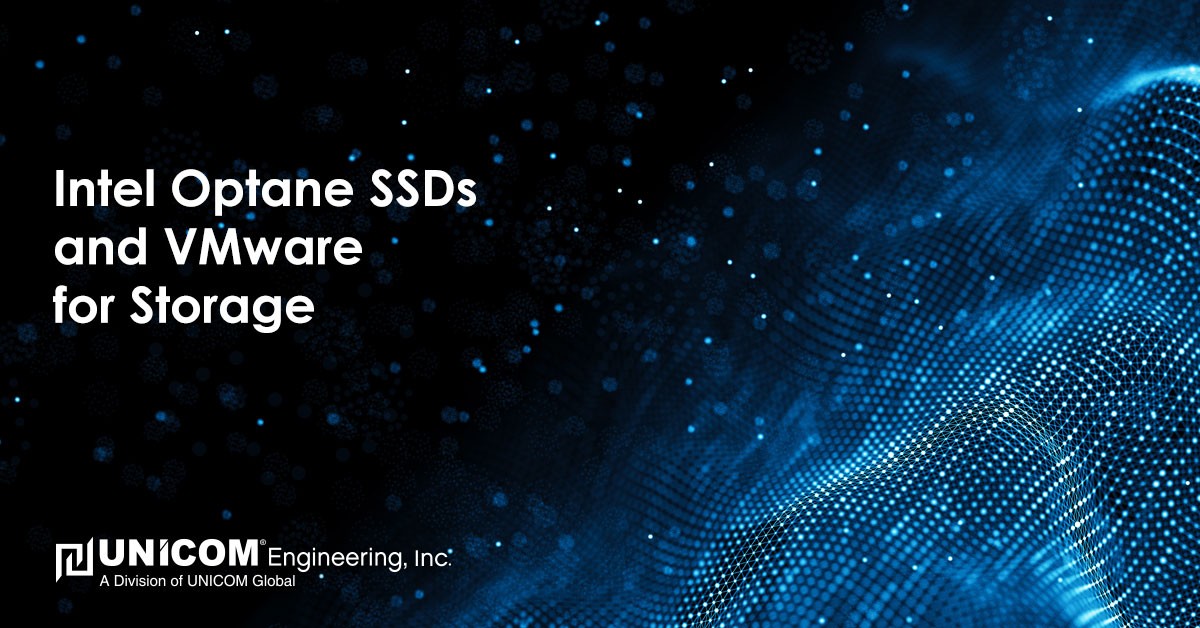As the capabilities of today's applications grow, they place more and more demands on existing infrastructure. Therefore, solution providers are challenged to provide more value while, on the backend, leveraging technologies like hybrid and multi-cloud environments.
In support of this growth, data storage must do more than serve the demands of today - it must be able to scale without a significant cost penalty. This accomplishment requires a look into both Intel Optane SSDs over older storage technologies and virtual storage area networks or VSANs over older storage architectures.
The Advantages of SSDs Over HDDs
Before discussing Intel's latest generation of SSD's and related technologies, let's review why SSDs are preferable to traditional HDDs.
Lower Cost Per Gigabyte - SSDs can store more data in less space, lowering the storage requirements of deployments.
Higher Reliability - Because SSD's do not employ moving parts, they fail at a much lower rate than traditional HDDs.
Increased Performance - Especially for today's data-intensive workloads, SSDs outperform HDDs. That's because they leverage the PCI interface on the server motherboard, which offers higher throughput instead of the SATA.
The Intel Optane SSD P5800X for VMware VSANs
Over the years, solution providers have continually needed newer storage appliances with greater capacity. To accommodate the market's latest needs, Intel has introduced its Optane SSDs. Not only does the Intel Optane SSD P5800X deliver on this promise of increased capacity and performance, but it also does so in a way that facilitates cost-effective growth.
Specifically, solution providers running VMware vSAN, VMware vSphere, VMware Cloud Foundation, or VMware Horizon can enjoy:
- Scalability and flexibility to handle ever-changing infrastructure needs
- Better remote user support, user collaboration, and faster database transactions
- Reduced operating and capital expenses
- Fast caching of hot data
- The world's fastest data center SSD with 23x lower latency, 5.6x more IOPS, and 9x higher throughput than NAND SSDs
- PCI Gen 4 support for maximal I/O performance
- High endurance reliability with a mean time between failures of 2 million hours (100 writes per day)
Plus, over the prior gen (Intel Optane SSD DC P4800X), the Intel SSD P5800X offers significant improvements. Some advances include 3x greater random 4K mixed R/W IOPS, 3x higher sequential 4K-128k bandwidth (R/W), and 67% higher endurance.
Improved VSAN Performance
VMware's Virtual Storage Network is commonly known as a vital building block to public and private cloud environments and software-defined networks. Intel Optane SSDs perform well in the cache tier of VMware's two-tier storage architecture and offer several benefits:
Low and Predictable Latency - With bit (not page) level write operations, Intel Optane SSDs offer reduced response time and the elimination of wasteful garbage data collection. As a result, the response time of the entire storage system can be predictable enough to handle a variety of workloads. That means the system isn't victim to lowered response time from unexpected I/O spikes.
Consistent and High Throughput - The Intel Optane SSD P5800X doesn't have to erase data before writing over it. This feature alone enables it to offer up to 80 percent higher write throughput compared to a typical NVME NAND drive. As a result, the VMware vSAN is significantly increased because its cache storage tier relies heavily on throughput.
Node Consolidation - Because Intel Optane SSDs offer, like cache, a much higher density per host, solution providers can lower their costs in storage space and power requirements. Furthermore, this entails up to a 30 percent reduction in node count and a 20 percent reduction in costs (thanks to lower hardware and software acquisition costs and a smaller server footprint).
Higher IOPS - For mixed workloads, Intel Optane SSDs can combine with 3rd Gen Intel Xeon Scalable processors to achieve even more. This latest combination compared to 2nd Gen Intel Xeon Scalable processors and an Intel Optane SSD DCP-4800X, the P5800X offers a 40 percent higher input/output operations per second (IOPS).
Are You Ready to Step-Up Your VSAN Performance?
As you grow your solution to meet the demands of your customers, so should its storage architecture scale and perform to meet your needs. That's why it's best to leverage the right hardware partner to build your VSAN of the future.
As an Intel Technology Provider, UNICOM Engineering has helped drive the latest solutions with our partners for decades. Our skilled team actively designs solutions based on the latest 3rd Gen Intel Xeon Scalable processors, Intel Optane persistent memory 200 series, Intel SmartNIC and Ethernet 800 Series Network Adapters, and Intel Optane SSDs. Our customers benefit from solutions optimized for telecom, cloud, enterprise, network, security, IoT, and HPC workloads with expanded I/O, storage, and network connectivity options by leveraging our services. Learn more about how UNICOM Engineering can help you transition to next-gen solutions by scheduling a consultation.
